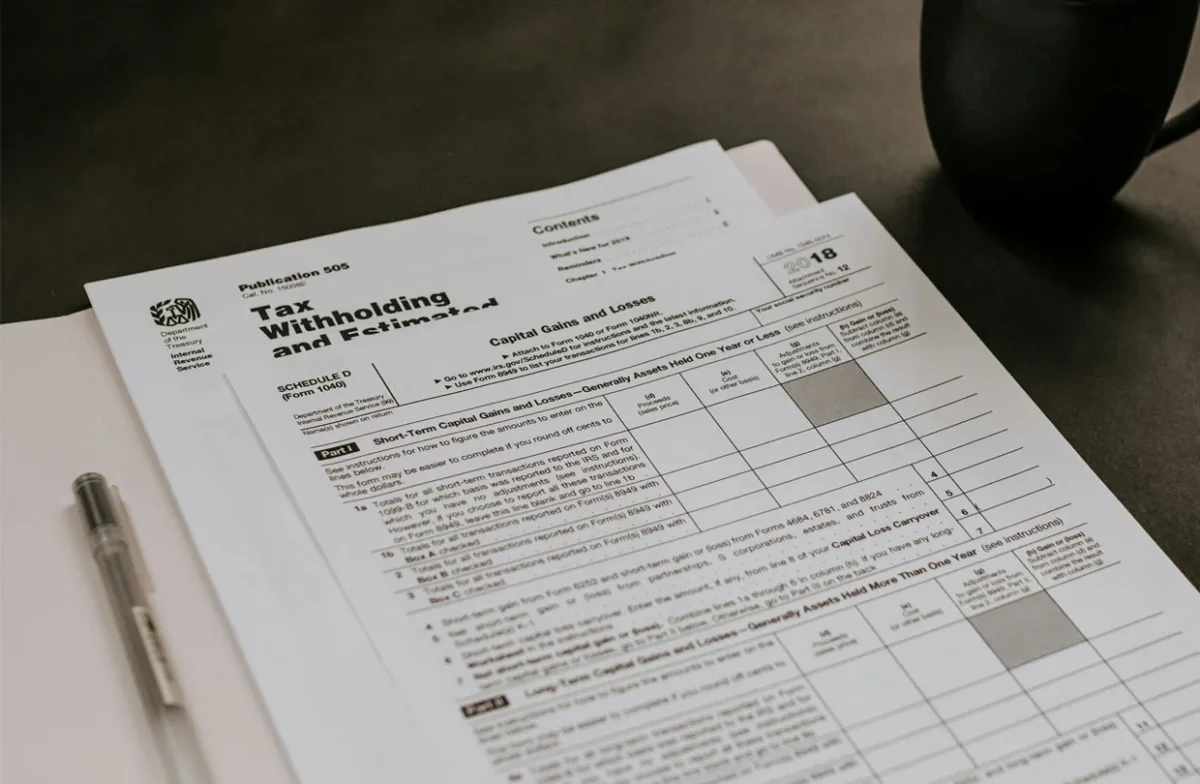A tax audit: two words that can cause any business owner to stop dead in their tracks. When the IRS decides to scrutinize your financial records, it becomes a time-consuming process and can cause unnecessary stress. Although most tax audits result from random selection or flagged discrepancies, there are strategies to minimize your risk.
In this article, we cover six proven methods to help you avoid the IRS’s scrutiny and keep your tax return in good standing.
1. Hire a professional tax preparer
One of the best ways to reduce your audit risk is to hire a certified tax professional. They’re equipped to handle the complexities of tax law, ensure accuracy, and minimize red flags. Recent IRS data shows that taxpayers who filed self-prepared returns had significant errors compared to those prepared by professionals.
A tax professional will not only ensure that you are compliant with IRS regulations, but also identify and resolve potential audit triggers.
Additionally, tax professionals stay updated with the latest tax code changes, which can be difficult for the average taxpayer to track. For example, the IRS has revised deductions related to the gig economy and cryptocurrency transactions, which are now starting to fall under more intense scrutiny.
2. Report all income accurately
One of the easiest ways to trigger an audit is by failing to report all your income. The IRS receives third-party information from employers, financial institutions, and others regarding your income, and if the numbers don’t match, your return may be flagged. In fact, paperwork discrepancies trigger most audits.
Make sure that your 1099-INT and 1099-DIV match what you report on the tax return. Aim to use exact numbers, instead of round numbers.
The importance of accuracy is particularly relevant to those in the gig economy, freelancers, and online sellers. The IRS has tightened oversight in these areas, and even minor mistakes can increase your audit risk. Ensure all your income is accounted for, including money coming from digital and freelance platforms.
3. Keep detailed and organized records
Maintaining comprehensive records for at least three years is critical for supporting your tax return. This includes receipts, bank statements, and documentation for deductions. Reporting a net year-end loss, especially a small one, can easily get you noticed by the IRS. Make sure you have all the proof you need to support yourself during any review process.
For business owners, this step becomes even more important. Incomplete records of expenses, particularly for Schedule C filers, increase the likelihood of an audit. Being organized ensures that, in case of any inquiries from the IRS, you can quickly present all necessary documentation, avoiding further scrutiny.
4. Avoid questionable deductions
Claiming excessive or unusual deductions, especially if they don’t align with typical amounts for your income bracket or profession, can set off red flags. For example, a 2023 report from the National Taxpayer Advocate found that 15% of high-income taxpayers who claimed deductions over 25% of their income were audited.
Charitable donations, unreimbursed business expenses, and home office deductions are the most commonly misused. In order to decrease your chances of being audited, make sure that these deductions are both clear and backed up with receipts and other paperwork. The home office deduction, in particular, is a frequent target for audits because many taxpayers claim it without meeting the strict IRS requirements.
According to recent IRS audits, 40% of home office deduction claims are disallowed due to improper filing or lack of documentation sources.
5. File on time and double-check your return
As the old adage goes, timing is everything.
Late filings or errors on your tax return can increase the likelihood of an audit. Filing on time shows that you are responsible and less likely to have issues with your return. However, there’s no evidence of a heightened risk of audit if you file late on a valid extension.
Before submitting your return, review all information for accuracy. Common errors like incorrect Social Security numbers, math mistakes, or inconsistent information from third parties can attract IRS attention. Using tax preparation software is helpful, but it is still wise to manually review your return before submission.
Many returns are selected for audit due to simple math errors.
However, don’t be concerned about the e-file versus paper file audit risk. Just opt for the method you’re most comfortable with. Either way, it won’t increase your risk of an audit.
6. Implement effective tax planning strategies
Proactive tax planning can significantly reduce your audit risk by ensuring that your financial activities are structured in a tax-efficient and compliant manner. Engaging in year-round tax planning with a professional like David’s Family CPA can help you anticipate and address potential audit triggers before they arise.
This includes maximizing legitimate deductions and credits, timing income and expenses strategically, and understanding the implications of major financial decisions such as selling assets or investing in new ventures.
Effective tax planning also involves staying on top of recent or upcoming changes in tax legislation that could affect your filings. To avoid any problems with the tax laws, make sure your finances are in accordance with the current tax codes.
Additionally, maintaining a clear and consistent financial record throughout the year makes it easier to substantiate your tax return if ever questioned by the IRS. Overall, thoughtful tax planning not only helps in reducing audit risk but also improves your financial health.
Keep an eye on your finances
With tax laws constantly evolving and the IRS increasing its focus on certain sectors, staying informed and diligent is more important than ever. That’s why it’s important to talk to tax experts, report all income correctly, keep detailed records, avoid questionable deductions, and file your return correctly and on time.
David’s Family CPA is determined that you achieve your financial goals with confidence. Of course, there are no guarantees. An audit isn’t always avoidable, but having detailed records to support your deductions will usually satisfy most auditors.

